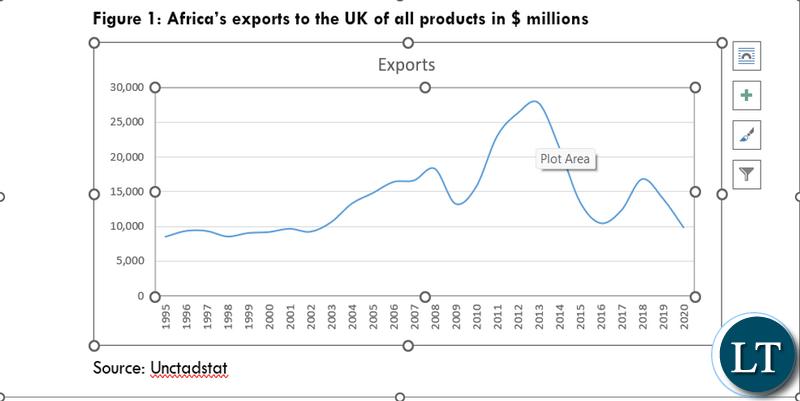
Africa-Press – Zambia. Commonwealth Heads of Government, including African members (I have no information about Zambia) meet today on Monday 20th June 2022 in Kigali, Rwanda with the objective of promoting economic development for its members. This objective embrace those of almost all member states, in particular Africans. While the five-day meeting will cover many topics, in this article, let’s have a colloquy on the reality in Africa’s trade partnership with the United Kingdom, also the main protagonist of the Commonwealth.
Without doubt, the meeting is likely to pledge for more trade between the UK and its members in Africa. After its exit from the European Union (EU) the UK has bent its global policy towards African members of the Commonwealth as investment and trading partners. The UK wants to do what it has not done in the last 2-3 decades in Africa. It wants to show the world that it is seriously doing business with Africa.
But one asks, in the last two decades, the UK has not been a formidable trading partner of Africa, so why now? And the quick answer is, among other reasons, China’s rise in its partnership with Africa and the UK’s exit from the EU. For many years, the UK has told Africa that trade is the surest source of finance, poverty alleviation and creation of jobs. On the other hand, African leaders are now asking for free trade and not free handouts. They want developed trading partners like the UK to provide free market access for Africa’s exports. As member of the EU and even now as non-member, the UK always encourages African partners to do more trade than receive aid.
In this article, we show the trends of export flows of each of the twenty African country members of the Commonwealth to the UK. My findings are that while Commonwealth leaders are pledging more trade between the UK and Africa, statistics show that past relationship in trade are not very good at all. I use UNCTADstat database for years 1995 and 2020 and see that ten African members lost their exports as seen by a reduction from 1995 to 2020. Botswana for example had its exports brought down from $ 1.6 billion in 1995 to $4 million in 2020. Mauritius saw its exports to the UK tumble from $527million to $155.
We ask the reader to see for yourselves for the rest of the member states. Rwanda, the host country of the Commonwealth meeting exported only $40 million worth of goods to the UK. Zambia’s exports to the UK have equally slumped from $22 to $15 million and are quite insignificant. In any case, Zambia’s main export markets, namely, China and Switzerland accounting for almost 60% of its world market. Perhaps Zambia is in the Commonwealth for something else, certainly not trade. On the other hand, with its former colonial master, Zambia is certainly divesting its trade partnership.
We also looked at Africa’s aggregate exports of all products to the UK. What we found is that, as Figure 1 below shows, Africa’s exports to the UK have been falling lamentably. You can see a devasting fall from about $$25 billion in 2014 to about $10 billion in 2020. So, one wants to ask, ‘What’s the point of making more pledges to trade more when past and current trade between the two partners is dwindling so miserably?
In concluding, I will only say, ‘Good luck African members of the Commonwealth. But don’t talk about trade with the UK at the meeting because it means nothing for the continent and for individual countries. Ask for foreign direct investment and technology transfer from the UK to Africa. That is what you need more than trade. That is what will contribute to structural change in Africa.
If the UK itself is in pursuit of realigning its development policy with Africa, which so far has been ailing in the last five decades, deliberately increased foreign direct investment, technology transfer and infrastructure building to and for Africa in high proportions would constitute an acceptable development model of the partnership. A common and simple economic foundation must be built first for Africa in order for our continent to build economic resilience and integrate in new and dynamic topics like global value chains and networks, e-commerce, climate change, gender and human rights, often seen as at the heart of developed countries in their pursuit to influence Africa.
For More News And Analysis About Zambia Follow Africa-Press






